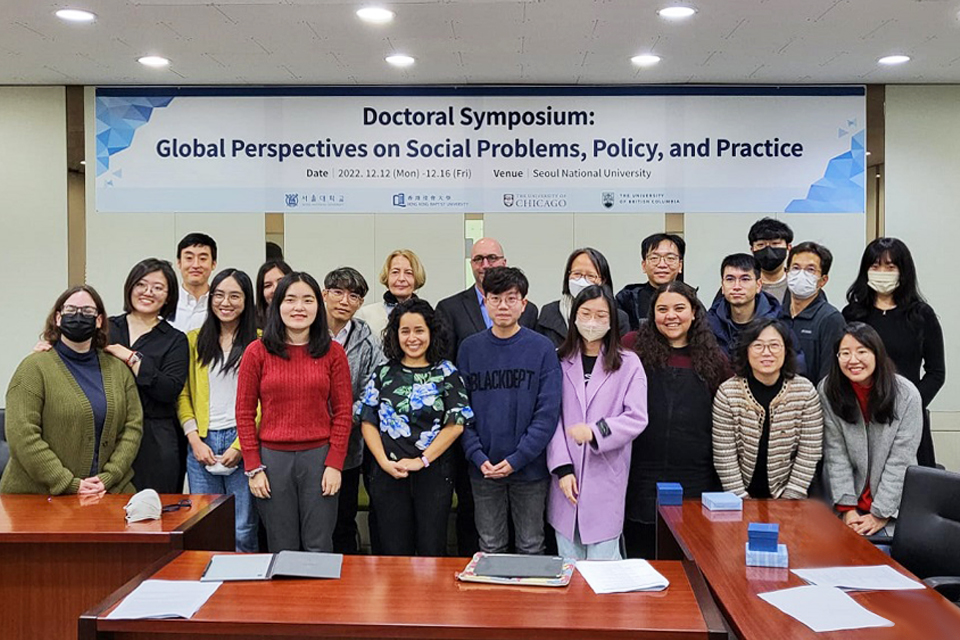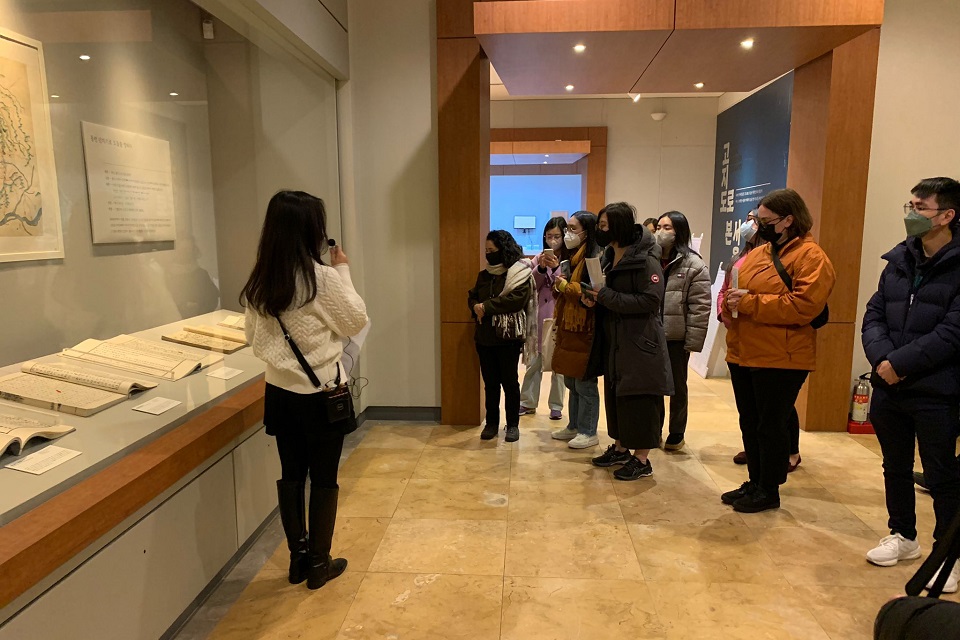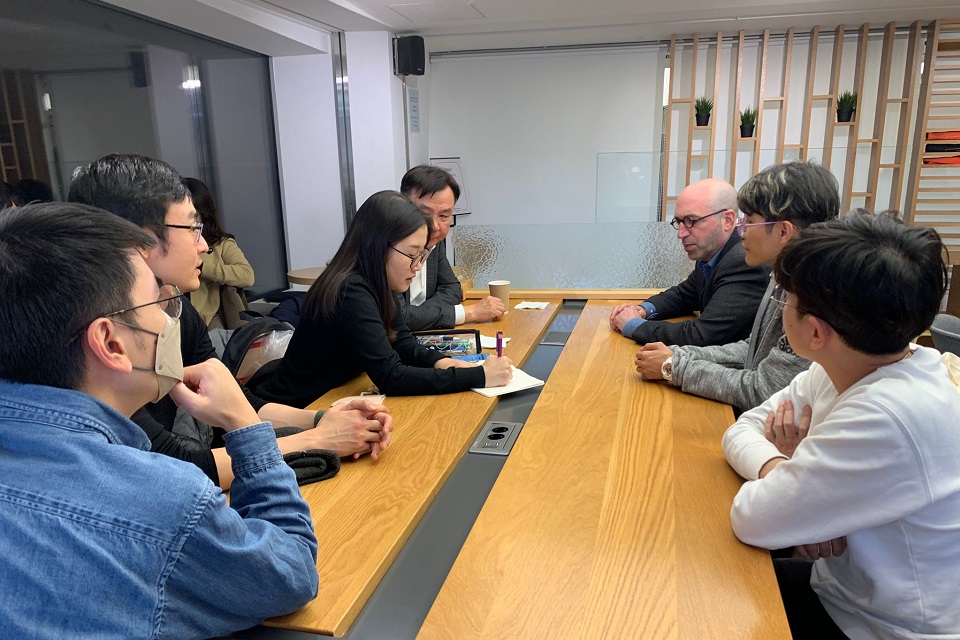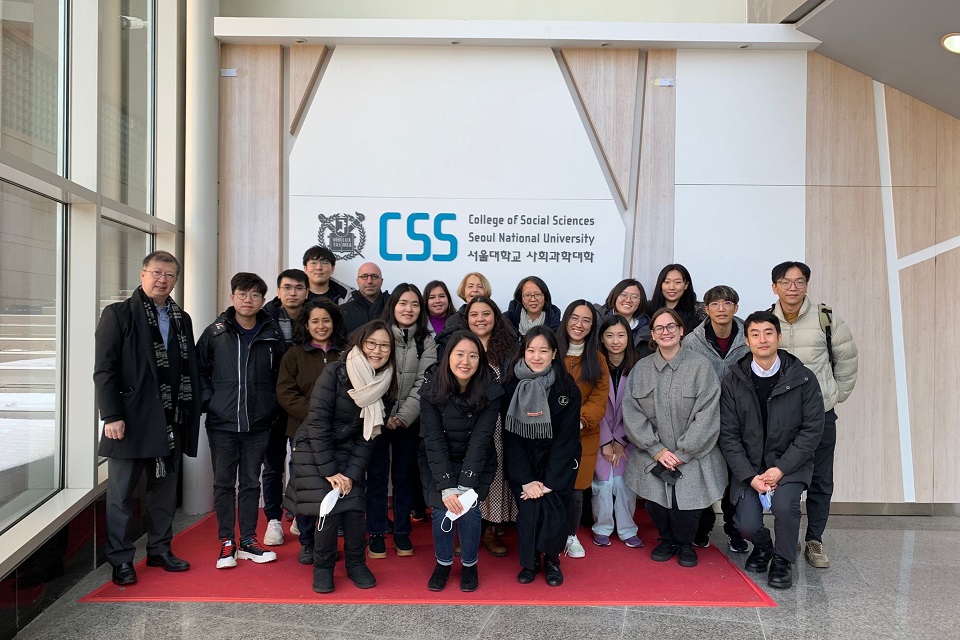Discover HKBU
Analysing social issues through a global lens
28 Dec 2022
Tourists who seek authentic travel experiences often choose to visit local neighbourhoods, and this practice can lead to changes occurring in the urban landscape of many cities. While the COVID-19 pandemic has impacted human mobility on a global level, the travel restrictions imposed by Hong Kong appear to have accelerated the changes taking place in the city’s older neighborhoods. This is according to research conducted by Lai Tsz-chung, a first-year Sociology PhD student at HKBU.
Tsz-chung was one of four HKBU PhD students who presented their research at the Doctoral Symposium: Global Perspectives on Social Problems, Policy, and Practice held from 12 to 16 December in Seoul. Jointly organised by HKBU, The University of Chicago (UChicago) in the US, Seoul National University in South Korea and The University of British Columbia in Canada, the symposium sought to foster international research collaboration and to advance the professional development of doctoral students through scholarly exchange.
The symposium was an extension of a research project carried out between HKBU and UChicago. The project is led by Professor Daniel Lai, Dean and Chair Professor of the Faculty of Social Sciences, and Dr Kaxton Siu, Associate Professor of the Department of Sociology at HKBU, in collaboration with Professor Robert Chaskin and Professor Colleen Grogan of the Crown Family School of Social Work, Policy, and Practice at UChicago.
At the event, faculty members who specialise in social work, policy and sociology in the four universities delivered seminars on topics related to a variety of social issues across the world. Doctoral students then presented their findings, which focused on five research areas, namely: globalisation, migration, and cross-national comparison; poverty and social development; children, youth, and families; health and mental health; and professional and workforce challenges and trajectories.
Tsz-chung described how he and his colleagues conducted social media data analysis and field studies which found that there was a sudden increase of interest in late 2020 among Hong Kong locals in Sham Shui Po, a historically blue-collar neighbourhood. They argued that travel enthusiasts in Hong Kong whose mobility had been curtailed by the pandemic sought out experiences that were a surprise to them, and this helped them escape from their humdrum daily routines. This, in turn, brought about the gentrification of the down-to-earth district.
Kyle He, a second-year Social Work PhD student at HKBU, discussed the impact of individuals’ socioeconomic status and gender differences on social capital in Chinese-speaking communities. He also appreciates having the opportunity to talk about his work in front of an international audience. He says: “The symposium provided me with an opportunity to acquire the skills to engage the audience as well as to present my research ideas and findings precisely. Most importantly, the event was a valuable and stimulating experience for academic exchange with students who have different research interests and backgrounds.”
The students also visited local communities in Seoul to find out more about the city’s services provided for social welfare, urban planning and migrants. The site visits helped Tsz-chung develop a perspective comparable with that for Hong Kong and reflect on the steps that our city can take to build a better society. “The social services agencies we visited are resourceful, and they have adopted innovative and entrepreneurial approaches to address social problems,” he says.
Both Tsz-chung and Kyle look forward to building networks with other researchers and exploring opportunities for collaboration. Calling his experience at the symposium “eye-opening”, Tsz-chung was delighted to meet his peers from different parts of the world who have similar research interests and to listen to their insightful ideas. Kyle shares the same sentiment, he says: “Understanding other students’ experiences and receiving their feedbacks on our research can inspire new ideas.”



